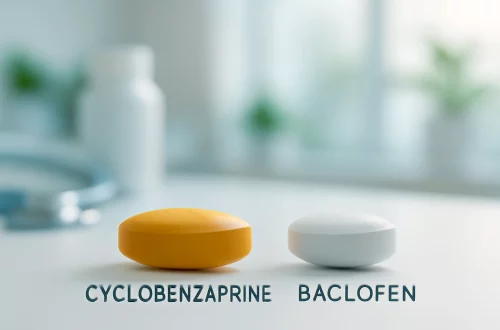
Obtaining Cat Antibiotics Without a Vet Prescription: What You Need to Know
Obtaining cat antibiotics without a vet prescription can be a tempting option for many pet owners. The desire to alleviate a pet’s suffering quickly and effectively often leads individuals to seek alternative routes for obtaining medication. However, this approach carries significant risks and ethical considerations. Understanding the implications of bypassing veterinary guidance is crucial for the well-being of your feline companion. Cats, like all animals, can react differently to medications, and what may seem like a harmless choice could inadvertently lead to severe consequences.
Antibiotics are powerful drugs that can play a vital role in treating bacterial infections, but they are not a one-size-fits-all solution. Misuse or overuse of antibiotics can lead to antibiotic resistance, a growing concern in both human and veterinary medicine. Therefore, it is essential to acknowledge the importance of professional veterinary oversight in any treatment plan.
In this article, we will explore the risks associated with obtaining cat antibiotics without a prescription, the importance of proper diagnosis and treatment, and some alternative options for cat care that can be pursued alongside veterinary guidance.
Understanding the Risks of Unprescribed Antibiotics
When pet owners consider obtaining antibiotics without a veterinary prescription, they often overlook the numerous risks involved. One of the primary concerns is the potential for incorrect self-diagnosis. Many symptoms that cats display, such as lethargy, loss of appetite, or unusual behavior, can stem from various underlying issues, not just bacterial infections.
Without a proper diagnosis from a veterinarian, the likelihood of administering the wrong medication increases significantly. This can result in treating the wrong condition, allowing the actual illness to worsen. Additionally, giving antibiotics for non-bacterial infections, such as viral or fungal infections, will not only be ineffective but could also lead to adverse side effects.
Another critical risk is the possibility of antibiotic resistance. When antibiotics are used improperly, such as for the wrong type of infection or in incorrect dosages, bacteria can adapt and become resistant to the medication. This resistance can lead to future infections becoming more difficult to treat, not just for your cat, but potentially for other pets and humans as well.
Moreover, there is a risk of side effects that vary from cat to cat. Some felines may be allergic to certain antibiotics, leading to symptoms ranging from mild gastrointestinal upset to severe reactions requiring immediate medical attention. In some cases, the potential for harm far outweighs the benefits of unprescribed medication.
In summary, while the idea of obtaining cat antibiotics without a prescription may seem like a quick fix, the associated risks can have dire implications for your pet’s health. Seeking veterinary advice ensures accurate diagnosis and appropriate treatment, safeguarding your cat’s well-being and contributing to the responsible use of antibiotics.
The Importance of Veterinary Guidance
Consulting a veterinarian before administering any medication is paramount for several reasons. First and foremost, veterinarians are trained to diagnose and treat a wide range of conditions affecting cats. They have the expertise to interpret symptoms accurately and determine whether antibiotics are necessary.
A veterinarian will conduct a thorough examination of your cat, which may include diagnostic testing such as blood work, urinalysis, or imaging. These tests help in identifying the specific type of infection and the most effective treatment options. By understanding the root cause of your cat’s symptoms, the veterinarian can prescribe the right antibiotic, dosage, and duration of treatment to ensure a successful recovery.
Additionally, a veterinarian can provide crucial information about potential side effects and interactions with other medications your cat may be taking. Some cats may be on long-term medications for chronic conditions, and combining them with antibiotics could lead to complications. A veterinarian’s guidance ensures that all aspects of your cat’s health are considered when prescribing treatment.
Furthermore, veterinary clinics often have access to a wider variety of medications that may not be available to the general public. They can choose from a range of antibiotics tailored specifically for feline use, ensuring that your cat receives the most effective and safe treatment available.
In some cases, your veterinarian may recommend alternative therapies or supportive care that can be just as effective as antibiotics. This could include dietary changes, supplements, or holistic approaches that complement traditional veterinary medicine.
Ultimately, the relationship between a pet owner and a veterinarian is built on trust and communication. By seeking professional advice, you are not only prioritizing your cat’s health but also contributing to a more responsible approach to pet care. Understanding the importance of veterinary guidance can lead to better health outcomes and a happier, healthier life for your feline friend.
Exploring Alternatives to Antibiotics
If you are concerned about your cat’s health but hesitant to use antibiotics without a prescription, there are several alternative approaches to consider. These options can provide supportive care and promote overall well-being while minimizing the need for medication.
One effective alternative is to focus on nutrition. Providing a balanced, high-quality diet tailored to your cat’s specific needs can significantly impact their immune system and overall health. Look for cat food that is rich in essential nutrients and formulated for your cat’s life stage. Some cats may benefit from specific diets designed to support urinary health, digestive health, or skin and coat health.
In addition to diet, consider incorporating supplements that can support your cat’s immune system. Probiotics, for example, can help maintain a healthy gut microbiome, which plays a crucial role in overall health. Omega-3 fatty acids are another beneficial supplement that can reduce inflammation and promote skin and coat health.
Regular veterinary check-ups are also essential for preventing health issues before they require antibiotics. Routine examinations can help identify potential problems early on, allowing for timely intervention and treatment. Keeping your cat’s vaccinations up to date is equally important, as it helps protect them against infectious diseases that could require antibiotic treatment.
Moreover, creating a stress-free environment for your cat can significantly contribute to their overall health. Stress can weaken the immune system, making cats more susceptible to illness. Provide plenty of enrichment activities, safe spaces, and interactive playtime to keep your cat mentally and physically stimulated.
Lastly, consider alternative therapies such as acupuncture or chiropractic care, which some pet owners find beneficial alongside traditional veterinary medicine. These holistic approaches may help alleviate certain conditions and improve your cat’s quality of life without the need for antibiotics.
In conclusion, while antibiotics can be life-saving medications, they should always be used under the guidance of a veterinarian. By exploring alternative approaches and focusing on preventive care, you can help ensure your cat remains healthy and may reduce the need for antibiotic interventions in the future.
**Disclaimer: This article is not intended as medical advice. Always consult a veterinarian for any health concerns regarding your pet.**




